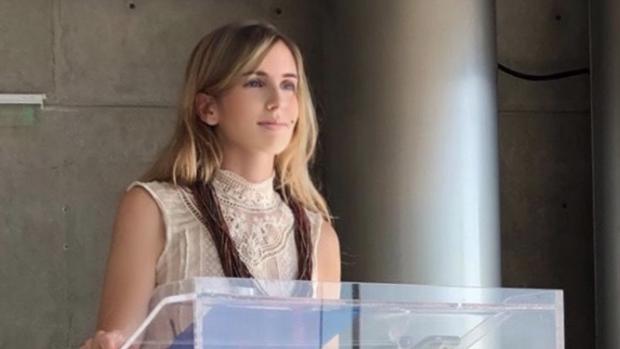Victoria Alsina Wins Fellowship for Transformative CrowdLaw Project

Research Professor Victoria Alsina received the Marie Skłodowska-Curie Individual Fellowship from the European Commission
Victoria Alsina, a research professor in Tandon’s Department of Technology, Culture, and Society and a senior fellow at NYU’s Governance Lab (the GovLab), has devoted her career to rethinking public institutions, exploring how collaboration and citizen engagement can change the way we govern, devising ways to solve some of society’s most pressing problems at the intersection of the public and private sectors, and helping communities and institutions work together effectively and legitimately.
It’s an undeniably tall order, but she recently received a strong vote of confidence from the European Commission, which awarded her a prestigious Marie Skłodowska-Curie Individual Fellowship. The highly selective fellowships recognize young European faculty members for their career accomplishments, important research, and potential.
Her project, which was ranked in the top five percent of all proposals received this year, involves CrowdLaw, the relatively new practice, conceptualized by the GovLab, of using technology to draw on the intelligence and expertise of the public to improve the quality of lawmaking. “With rates of trust in government at all-time lows, the legitimacy of traditional representative models of law and policymaking, typically dominated by political party agendas and conducted by professional staff and politicians working behind closed doors, is called into question,” Alsina, who coordinates the CrowdLaw Initiative and the citizen engagement research agenda at the GovLab, explains. “Technology offers the promise of opening how parliaments and governments work, creating new challenges and dangers for individual rights and democracy, but also generating unprecedented opportunities for improving the legitimacy and, more generally, the quality of law and decision-making in our political systems.”
The fellowship will allow her to continue her work in advancing understanding (both theoretically and empirically) CrowdLaw’s impact on legislative and executive institutions, the public, and political culture. She foresees transforming local legislatures into CrowdLaw living labs in order to test how CrowdLaw initiatives impact the legitimacy and quality of law and policymaking and, ultimately, to support legislatures, especially city councils, in designing more participatory lawmaking practices. “Because my candidacy was based, in large part, on my existing research agenda, the fellowship affirms the good work we’re doing here both at the GovLab and in the Department of Technology, Culture, and Society,” Alsina — who holds a B.A. in Political Science and Public Administration from Universitat Pompeu Fabra (UPF); an MPA from Universitat Autònoma de Barcelona; an M.A. in Public Management from ESADE Business School; and a Ph.D. in Political and Social Sciences from UPF — says.
Victoria is helping to uncover new ways to forge more active citizenship and better-quality laws. We are proud that she is doing such valuable work here at the GovLab and gratified that her efforts have been recognized with this esteemed fellowship.”
— Beth Simone Noveck, founding director of the GovLab
Recently appointed the head of the Delegation of the Catalan Government to the United States of America and Canada (a region she has described as “a gateway to the most vibrant hub for knowledge and entrepreneurship for Southern Europe”), Alsina is currently teaching a Tandon course titled “Collaborative and Participatory Strategies for Sustainable Cities,” which will examine the big ideas, key debates, policies, and tools relevant to helping cities address the issues framed in the U.N.’s 17 Sustainable Development Goals.
“I am not surprised that Victoria has been recognized in recent days not only by the European Commission but by the Catalan Government,” Department of Technology, Culture, and Society Chair Jonathan Soffer says. “Her research is of great importance for promoting positive citizen participation in government, and our students are benefiting immeasurably from her deep real-world experience and thoughtful leadership.”




